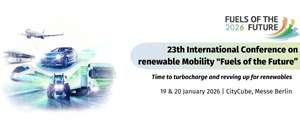The Aussies go bananas for fuel
Horticultural organisation Growcom intends to generate power from biogas from the 30% of harvested bananas in Australia which are deemed unsaleable and wasted along with leaves and plant stalks.
Growcom’s Banana Waste 2 Energy (BW2E) project aims to capture the energy in banana waste for on-site power generation and transport fuel.
The BW2E project is designed to process 2,500 tonnes of banana waste a year, producing at least 86,506 m3 of methane gas.
With a wholesale value of approximately $350 million (€201 million), the Australian banana industry is one of the largest fruit growing industries in the country and an important contributor to the economies of rural communities in banana growing areas.
However at full production, Queensland’s banana industry produces around 60,000 tonnes of waste.
Biogas, a mixture primarily of methane and carbon dioxide, is generated through the anaerobic digestion process, through which bacteria degrades biological, or organic material.
Australia has an established bioenergy industry with mature extraction technology. The sugar industry has been using bioenergy to supply electricity and heat requirements for over 100 years and today, bioenergy supplies electricity equivalent to the needs of approximately 400,000 households.
The BW2E project aims to prove the quality and yield of methane gas from bananas using a continuously fed digester. The resulting gas will be analysed for its methane content, scrubbed to remove the carbon dioxide then compressed for use in power generation and as a substitute for diesel and petrol in farm vehicles.
Growcom believes the Queensland banana industry alone is capable of sustaining at least 10 digester units and that there is further potential at other pack houses throughout Australia as well as wholesale markets and food processing facilities.
The project is currently being trialled at a Queensland pack house.
‘We have built an in-ground 450,000 litre capacity High Density PolyEthylene digester and the infrastructure to get the waste from the shed into the digester without disrupting existing shed practices. We have commenced loading and are now adjusting the chemistry to achieve conditions conducive to methane production,’ Growcom director Keith Noble says.










